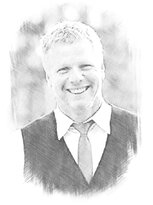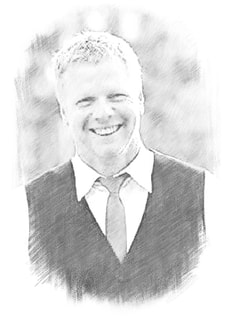- Timothy Whitt - Galyn Wiemers -
==Timothy Whitt==============
 Timothy Whitt
Timothy Whitt
James 2:17, “So also faith by itself, if it does not have works, is dead.”
James once again wants to make it clear. Faith in God equals working to be God’s hands, feet and voice in this world. The Bible is clear in verses like Ephesians 2:8-10, “For it is by grace you have been saved, through faith — and this is not from yourselves, it is the gift of God — not by works, so that no one can boast.” we are not saved by our works. However, in verses like James 2:17, and again in James 2:26, “For as the body apart from the spirit is dead, so also faith apart from works is dead.” The Bible is clear that your life must exhibit a working faith. So now is the time for you to reflect on your life of faith. If you do not see yourself doing, going or speaking for God then it might be time to give your faith life some CPR.
--Timothy Whitt; LetterPile; Your Faith - Dead or Alive, a Devotion From James 2:14-19 8.2.23
James once again wants to make it clear. Faith in God equals working to be God’s hands, feet and voice in this world. The Bible is clear in verses like Ephesians 2:8-10, “For it is by grace you have been saved, through faith — and this is not from yourselves, it is the gift of God — not by works, so that no one can boast.” we are not saved by our works. However, in verses like James 2:17, and again in James 2:26, “For as the body apart from the spirit is dead, so also faith apart from works is dead.” The Bible is clear that your life must exhibit a working faith. So now is the time for you to reflect on your life of faith. If you do not see yourself doing, going or speaking for God then it might be time to give your faith life some CPR.
--Timothy Whitt; LetterPile; Your Faith - Dead or Alive, a Devotion From James 2:14-19 8.2.23
==galyn Wiemers=================
 Galyn Wiemers
Galyn Wiemers
Paul was “called” an apostle. The Greek does not have “to be” in it. So it says “a called apostle” It was never in his mind something he had earned or attained. There are many kinds of apostles: “self appointed apostles”, “man ordained apostles”, “vocational apostles”. Paul was “a called apostle”. This word form usually has the passive meaning. The word “called” means designated and set apart.
“Set Apart” means “to mark off, to separate by a boundary.” It is a perfect passive participle indicates that this was done to Paul without his assistance. Paul had set himself apart to be a Pharisee, but God set him apart for the gospel. The word “Pharisee” means
separated one” and comes form the same root as the word translated “set apart”. The Pharisees where set apart by men and by tradition. Paul uses this verb in Galatians 1:15 and says that he was set apart “from birth”.
-Galyn Wiemers; Generation Word
“Set Apart” means “to mark off, to separate by a boundary.” It is a perfect passive participle indicates that this was done to Paul without his assistance. Paul had set himself apart to be a Pharisee, but God set him apart for the gospel. The word “Pharisee” means
separated one” and comes form the same root as the word translated “set apart”. The Pharisees where set apart by men and by tradition. Paul uses this verb in Galatians 1:15 and says that he was set apart “from birth”.
-Galyn Wiemers; Generation Word
 Galyn Wiemers
Galyn Wiemers
In Matthew 16:1-5, the religious leaders in Christ’s day were trying to make a decision about who Jesus was. So far they had rejected the available information they already had about Jesus, including: 1. The witness of John the Baptist 2. Jesus’ own words 3. Scriptural testimony 4. Jesus’ miraculous works The Pharisees and Sadducees (religious leaders) came to Jesus and tested him by asking him to show them a sign from heaven. Jesus replied: “When evening comes, you say, ‘It will be fair weather, for the sky is red,’ and in the morning, ‘Today it will be stormy, for the sky is red and
overcast.’ You know how to interpret the appearance of the sky, but you cannot interpret the signs of the times. A wicked and adulterous generation looks for a miraculous sign, but none will be given it except the sign of Jonah.’ Jesus then left them and went away.” Matthew 16:1-4
Although the Pharisees and Sadducees presented themselves as open-minded seekers who wanted to know the truth, the fact was that they would only hear the truth on their terms. Jesus’ response to them indicates that he didn’t view them as real seekers desiring revelation from God, but, rather, men who had rejected the truth time and time again. We too can deduce that those who reject God’s available revelation while still presenting themselves as “open-minded truth seekers” will be rebuked just like the Pharisees and Sadducees. Jesus says, “A wicked and adulterous generation looks for a miraculous sign.” Why does he say this? Because only a morally corrupt generation would reject all the revelation God had already provided. Jesus made it clear that no miraculous sign would be given. In other words, God will not ever split the sky, step out of the heavens, and appear in all his glory just long enough for a New York Times photographer to snap his picture and a CNN cameraman to catch it on film. Although that would be very impressive proof of the reality of God’s existence, our creator knows that even an incredible supernatural appearance would do mankind little good. Why? Because as soon as God vanished back into heaven, everyone who’d rejected all his previous revelations would begin to explain away the latest miracle. If men have already found a way to disprove God’s revelation in nature, logic, scripture, and history, they won’t hesitate to again use their science and philosophy to explain away even the most obvious revelation of God’s existence. Consider the Exodus generation. They were a generation of people enslaved in Egypt when Moses first spoke to Pharoah concerning their freedom. He then called upon signs from God and struck Egypt with ten terrible plagues. The Exodus generation experienced all of the ghastly plagues and later walked through the Red Sea after it was parted by the very hand of God. They were led through the wilderness by a pillar of cloud and fire, and they experienced an incredible manifestation of God on Mt. Sinai. And yet, even after witnessing all these miraculous works of God, the Exodus generation still didn’t believe he would lead them into the Promised Land. Because of their disbelief, they spent the rest of their lives wandering in the wilderness. Hebrews 3:16-18 says: “Who were they who heard and rebelled? Were they not all those Moses led out of Egypt? And with whom was he angry for forty years? Was it not those who sinned, whose bodies fell in the desert? --Galyn Wiemers; Hope for America’s Last Generation
overcast.’ You know how to interpret the appearance of the sky, but you cannot interpret the signs of the times. A wicked and adulterous generation looks for a miraculous sign, but none will be given it except the sign of Jonah.’ Jesus then left them and went away.” Matthew 16:1-4
Although the Pharisees and Sadducees presented themselves as open-minded seekers who wanted to know the truth, the fact was that they would only hear the truth on their terms. Jesus’ response to them indicates that he didn’t view them as real seekers desiring revelation from God, but, rather, men who had rejected the truth time and time again. We too can deduce that those who reject God’s available revelation while still presenting themselves as “open-minded truth seekers” will be rebuked just like the Pharisees and Sadducees. Jesus says, “A wicked and adulterous generation looks for a miraculous sign.” Why does he say this? Because only a morally corrupt generation would reject all the revelation God had already provided. Jesus made it clear that no miraculous sign would be given. In other words, God will not ever split the sky, step out of the heavens, and appear in all his glory just long enough for a New York Times photographer to snap his picture and a CNN cameraman to catch it on film. Although that would be very impressive proof of the reality of God’s existence, our creator knows that even an incredible supernatural appearance would do mankind little good. Why? Because as soon as God vanished back into heaven, everyone who’d rejected all his previous revelations would begin to explain away the latest miracle. If men have already found a way to disprove God’s revelation in nature, logic, scripture, and history, they won’t hesitate to again use their science and philosophy to explain away even the most obvious revelation of God’s existence. Consider the Exodus generation. They were a generation of people enslaved in Egypt when Moses first spoke to Pharoah concerning their freedom. He then called upon signs from God and struck Egypt with ten terrible plagues. The Exodus generation experienced all of the ghastly plagues and later walked through the Red Sea after it was parted by the very hand of God. They were led through the wilderness by a pillar of cloud and fire, and they experienced an incredible manifestation of God on Mt. Sinai. And yet, even after witnessing all these miraculous works of God, the Exodus generation still didn’t believe he would lead them into the Promised Land. Because of their disbelief, they spent the rest of their lives wandering in the wilderness. Hebrews 3:16-18 says: “Who were they who heard and rebelled? Were they not all those Moses led out of Egypt? And with whom was he angry for forty years? Was it not those who sinned, whose bodies fell in the desert? --Galyn Wiemers; Hope for America’s Last Generation




